Rashomon Blu-ray Movie
HomeRashomon Blu-ray Movie 
羅生門 / RashômonCriterion | 1950 | 89 min | Not rated | Nov 06, 2012
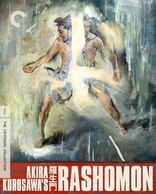
Movie rating
8.4 | / 10 |
Blu-ray rating
| Users | 4.8 | |
| Reviewer | 4.5 | |
| Overall | 4.6 |
Overview
Rashomon (1950)
In medieval Japan, four people offer conflicting accounts of a rape and murder.
Starring: Toshirô Mifune, Machiko Kyô, Masayuki Mori (I), Takashi Shimura, Minoru ChiakiDirector: Akira Kurosawa
| Foreign | Uncertain |
| Drama | Uncertain |
| Period | Uncertain |
| Psychological thriller | Uncertain |
| Mystery | Uncertain |
| Crime | Uncertain |
| Thriller | Uncertain |
Specifications
Video
Video codec: MPEG-4 AVC
Video resolution: 1080p
Aspect ratio: 1.37:1
Original aspect ratio: 1.37:1
Audio
Japanese: LPCM Mono (48kHz, 24-bit)
English: Dolby Digital Mono (192 kbps)
Subtitles
English
Discs
50GB Blu-ray Disc
Single disc (1 BD)
Playback
Region A (locked)
Review
Rating summary
| Movie | 5.0 | |
| Video | 4.5 | |
| Audio | 4.0 | |
| Extras | 5.0 | |
| Overall | 4.5 |
Rashomon Blu-ray Movie Review
Reviewed by Dr. Svet Atanasov October 17, 2012The first Japanese film to win the prestigious Golden Lion Award at the Venice Film Festival, Akira Kurosawa's "Rashomon" (1950) arrives on Blu-ray courtesy of Criterion. The supplemental features on the disc include the film's original Japanese trailer; short introduction by Robert Altman; excerpts from the Japanese television documentary The World of Kazuo Miyagawa; interview with actor Takashi Shimura; audio commentary by critic and Japanese film historian Donald Richie; and more. The release also arrives with an illustrated booklet featuring an essay by film historian Stephen Prince; an excerpt from director Akira Kurosawa's "Something Like an Autobiography"; and reprints of Rashomon's two source stories by Ryunosuke Akutagawa. In Japanese, with optional English subtitles for the main feature. Region-A "locked".
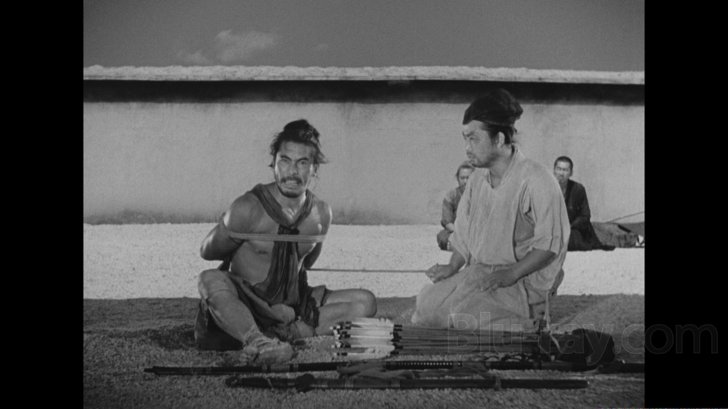
And then I saw that woman...
A powerful rainstorm forces a woodcutter (Takashi Shimura, Ikiru, Seven Samurai), a priest (Minoru Chiaki, Godzilla Raids Again, Throne of Blood), and a commoner (Kichijirô Ueda, Ugetsu Monogatari) to take shelter in Rashomon, an abandoned gatehouse somewhere on the outskirts of Kyoto. While waiting for the rain to stop, they begin discussing a recent crime.
The woodcutter has witnessed the crime. He has already testified before a judge but is uncertain about the exact order of the events leading up to the crime and the motives behind it. He senses that he is missing something important, perhaps a clue that explains why the crime was committed. Like the woodcutter, the priest has also testified. He has a theory about what might have occurred and why, but he is also confused. The commoner, who is yet to form an opinion, prefers to listen to the woodcutter and the priest’s discussion.
The main suspect is a local bandit named Tajomaru (Toshirô Mifune, Yojimbo/Sanjuro). According to the woodcutter’s story, while wandering around Tajomaru encountered a traveling samurai (Masayuki Mori, Floating Clouds) and his wife (Machiko Kyô, Floating Weeds). Blinded by her beauty, he attacked the samurai, tied him up and made love to his wife. Before he left, Tajomaru killed the samurai.
Maybe.
As the woodcutter keeps reexamining the events he witnessed, he begins wondering if the woman may actually be the one responsible for the samurai’s death. There are words she uttered that now make him think that she might have manipulated Tajomaru to use his sword. But isn’t the killer always the one who does the killing?
As the rainstorm gets stronger and stronger, the woodcutter, the priest, and the commoner move further back into the gatehouse and begin pondering human nature.
Based on two short stories by Ryunosuke Akutagawa, Akira Kurosawa’s Rashomon is a simple but powerful, immensely thought-provoking film. Though it may seem like it tells a story about a crime, it actually offers a fascinating analysis of the way people perceive, define and defend what they believe to be the truth.
The film is structured as a collage of flashbacks - considering the time when it was completed, a truly groundbreaking approach to storytelling - which essentially introduce different points of view. The focus of attention in each flashback is on the events leading up to the samurai’s murder. Depending on how they are described, they basically repeatedly alter the viewer’s assessment of the crime. Excluding the victim, the guilty parties are never convincingly identified.
In addition to the unique narrative structure, Kazuo Miyagawa’s (Sanshô Dayû) lensing is also enormously impressive. Kurosawa and Miyagawa used the camera in a variety of unconventional ways, such as pointing it directly to the sun, to highlight and enhance specific overtones. The fluid movement during the forest sequences and the precise framing during the hearings also stand out.
The cast is very good. The young and energetic Mifune is particularly entertaining as the wild and initially quite naive bandit Tajomaru. The true star of the film, however, is Kyô, whose character serves as a litmus test for the viewer’s dissection of the flashbacks.
Note: In 1951, Rashomon won the prestigious Golden Lion Award for Best Film and the Italian Film Critics Award (Akira Kurosawa) at the Venice Film Festival.
Rashomon Blu-ray Movie, Video Quality 
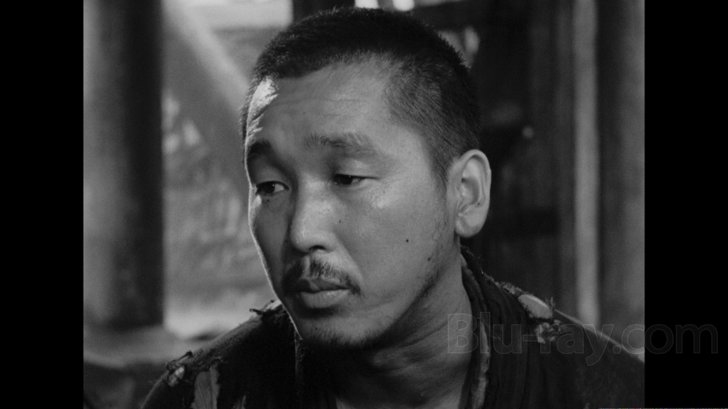
Presented in its original aspect ratio of 1.37:1, encoded with MPEG-4 AVC and granted a 1080p transfer, Akira Kurosawa's Rashomon arrives on Blu-ray courtesy of Criterion.
Rashomon was restored in 2008 by The Academy Film Archive, The National Film Center of the National Museum of Modern Art, Tokyo and Kadokawa Pictures, Inc., with funding provided by Kadokawa Culture Promotion Foundation and The Film Foundation.
The following text appears inside the booklet provided with this Blu-ray disc:
"The basis for the restoration was a 35mm black-and-white print held in the collection of the National Film Center in Tokyo. Made in 1962 from the original camera negative, the print itself was in good physical condition, but the negative from which it had been made was extremely battered due to extensive printing and handling over the years; many shots had started to shrink and warp, and there were numerous scratches and abrasions. Moreover, dust, dirt, and other artifacts from the damaged negative had been photographed into the print.
The print was scanned at 4K resolution at Lowry Digital in Burbank, California. The original scans were then converted to 2K files for extensive image processing and cleanup. Certain damage could be repaired using Lowry's automated software, but many frames had to be cleaned by hand. The warping in some shots and the blurring of every second frame of the film were addressed with customized visual effects tools. Once the image restoration was complete, two 4K digital intermediate 35mm negatives were produced, as well as a complete digital archive of both the raw scan and the restored image files.
The film's audio was restored from the 1962 print and a fine-grain master positive in the Kadokawa Foundation's collection. The elements were transfered at DJ Audio in Los Angeles, and Audio Mechanics in Burbank identified the best source element for each shot, in order to create a seamless soundtrack.
Restoration supervisors:
Michael Friend, Michael Pogorzelski/Academy Film Archive, Los Angeles.
Akira Tochigi/National Film Center, National Museum of Modern Art, Tokyo.
Yuniko Amano, Masao Kawano/Kadokawa Pictures, Inc., Tokyo."
Criterion's presentation of Rashomon is enormously impressive. Detail and especially depth are dramatically improved, both during close-ups (see screencapture #5) and larger panoramic shots (see screencapture #3). Even the sequences with the heavy rain boast improved clarity (see screencapture #7). Color grading is also very pleasing - the blacks are solid but not boosted, while the variety of grays and whites are well balanced. There are absolutely no traces of problematic sharpening corrections. Also, there are no traces of excessive degraining. Actually, it appears that the grain has been rebalanced in a few areas where damage was apparently serious. Various stabilizations have been performed as well. Unsurprisingly, there is no edge flicker or serious transition issues to report in this review. Last but not least, the entire film must have been carefully cleaned up because there are absolutely no large damage marks, cuts, or even large scratches. All in all, I feel very confident stating that Criterion's presentation of Rashomon will be the film's definitive presentation for many years to come. It is that impressive. (Note: This is a Region-A "locked" Blu-ray disc. Therefore, you must have a native Region-A or Region-Free PS3 or SA in order to access its content).
Rashomon Blu-ray Movie, Audio Quality 
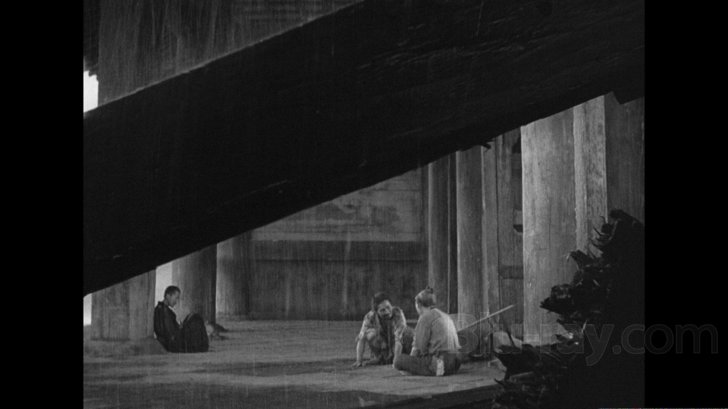
There are two audio tracks on this Blu-ray disc: Japanese LPCM 1.0 and English Dolby Digital 1.0. For the record, Criterion have provided optional English subtitles for the main feature.
It is obvious that various stabilization corrections have been performed in the audio department as well. Background hiss is either effectively minimized or completely eliminated. Also, there are no annoying pops or sudden audio dropouts. Predictably, dynamic movement is quite limited, and especially during a few sequences early into the film there is also some unevenness. It is pretty clear, however, that the minor fluctuations that have been retained are inherited source limitations. The dialog is stable and the English translation is excellent.
Rashomon Blu-ray Movie, Special Features and Extras 
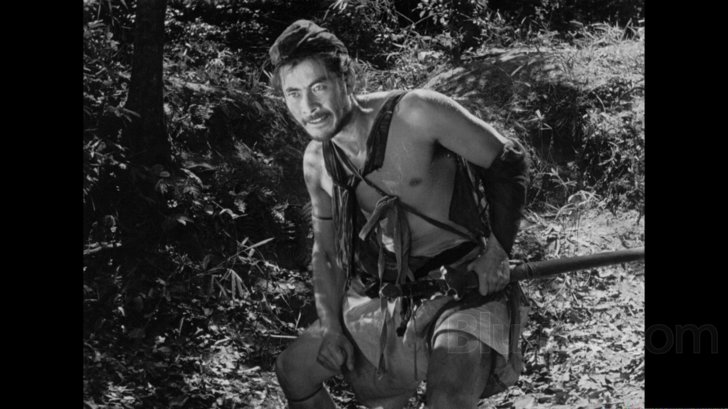
- Trailer - original Japanese trailer for Rashomon. In Japanese, with optional English subtitles. (4 min, 1080i).
- Robert Altman on Rashomon - the late American director discusses Akira Kurosawa's Rashomon, its unique themes and qualities (the innovative camera work in particular). In English, not subtitled. (7 min, 1080i).
- The World of Kazuo Miyagawa - excerpts from the Japanese television documentary The World of Kazuo Miyagawa. Throughout his career the legendary cinematographer worked with a number of renowned Japanese directors, including Kon Ichikawa, Yasujiro Ozu, Kenji Mizoguchi, Yasuzo Masumura, and Kazuo Mori. In Japanese, with optional English subtitles. (13 min, 1080i).
- A Testimony as an Image - in this documentary, script supervisor Teruyo Nogami, who first worked with Akira Kurosawa on Rashomon, meets many of the film's cast and crew members, including co-writer Shinobu Hashimoto and assistant director Tokuzo Tanaka. The documentary includes discussions and interviews where the participants address the production history of Rashomon and the various technical and logistical challenges that had to be overcome, Akira Kurosawa's work ethic, etc. In Japanese, with optional English subtitles. (69 min, 1080i).
- Interview with Takashi Shimura - actor Takashi Shimura, who plays the woodcutter in Rashomon, is interviewed by writer and film critic Gideon Bachman at the 1961 Berlin International Film Festival. The interview is translated by Japanese film historian Donald Richie. In English, not subtitled. (16 min, 1080p).
- Commentary - this is the same audio commentary which critic and Japanese film historian Donald Richie recorded in 2001 for Criterion. The commentary appeared on Criterion's old DVD release of Akira Kurosawa's Rashomon (2002).
- Booklet - illustrated booklet featuring an essay by film historian Stephen Prince; an excerpt from director Akira Kurosawa's "Something Like an Autobiography"; and reprints of Rashomon's two source stories by Ryunosuke Akutagawa, Rashomon and In a Grove.
Rashomon Blu-ray Movie, Overall Score and Recommendation 
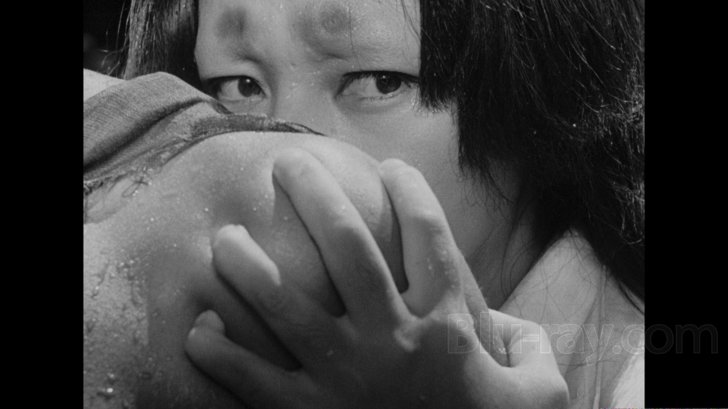
Regarded by many as one of the greatest films ever made, Akira Kurosawa's legendary Rashomon arrives on Blu-ray in spectacular fashion. Restored in 2008 by The Academy Film Archive, The National Film Center of the National Museum of Modern Art, Tokyo and Kadokawa Pictures, Inc., the film undoubtedly looks the best it ever has. I think that those of you who have been patiently waiting for it to arrive on Blu-ray will be very pleased with Criterion's presentation. I also believe that Criterion's Blu-ray release will be the definitive home video release of Rashomon for many years to come. Buy with confidence, folks. VERY HIGHLY RECOMMENDED.
Similar titles
Similar titles you might also like

High and Low 4K
天国と地獄 / Tengoku to jigoku
1963

Yojimbo
用心棒 / Yôjinbô
1961

Throne of Blood
蜘蛛巣城 / Kumonosu-jô
1957

Sanjuro
椿三十郎 / Tsubaki Sanjûrô
1962

Memories of Murder
살인의 추억 / Salinui chueok
2003

Sansho the Bailiff
山椒大夫 / Sanshô dayû
1954

Harakiri
切腹 / Seppuku
1962

M
M - Eine Stadt sucht einen Mörder / German and English Versions
1931

Le Samouraï 4K
1967

Mother
마더 / Madeo
2009

Insomnia
1997

Diabolique
Les diaboliques
1955

The Virgin Spring
Jungfrukällan
1960

The Third Murder
三度目の殺人
2017

Le Cercle Rouge 4K
Uncut Version | includes remastered BD
1970

Purple Noon
Plein soleil
1960

Ikiru
生きる
1952

The Girl Who Kicked the Hornet's Nest
Luftslottet som sprängdes
2009

Anatomy of a Fall
Anatomie d'une chute
2023

The American Friend
Der amerikanische Freund
1977